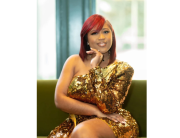When most college students think about their spring semester, they’ll thinking about Springfest, graduation and elections; however, March 15th changed that when stay-at-home orders were placed upon many cities, states and countries. Most universities had to make quick decisions pertaining to their students while presidents had to decide if they would stay on campus, go home, have classes online or just cancel the whole semester. I had the opportunity to speak with Dillard University’s President Dr. Walter Kimbrough. Kimbrough is in his 16th year as president. Dillard University is home to 1,250+ students. Dillard is a private institution based in New Orleans, LA. Dr. Kimbrough gave insight about his tenor and how he plans on moving Dillard forward after COVID-19.
As the president of a Private Institution like Dillard University, what do you think will be an issue after COVID-19 when it comes to enrollment?
The issue after COVID-19 will be the ability of families to pay for higher education. Black families will be more greatly impacted by job losses, so that will impact enrollment potentially. No one really knows because we have never seen this.
Other universities such as Prairie View, Texas Southern, Southern and Xavier also placed stay-at-home orders. Their students had to finish out the rest of the semester at home. You would think that wouldn’t be an issue especially in 2020 however, this proved to be a case by case study. Dillard University is actually in the heart of New Orleans so they’re no strangers to disasters.
Has Dillard faced any struggles moving their classes to an online platform?
The main challenge is faculty who did not have as much experience had to work hard to get up to speed, and students who don’t like online had to figure out how to make it work. We have a great platform already because we are in hurricane country. A great majority of our students were already taking a class online.
COVID-19 in the eyes of the college student look forward to graduation, spring fest, elections, and king/queen pageants really feel like they were let down by their respected institutions. Schools like Dillard, Xavier and Southern already had a system for these kinds of issues.
How do you plan on regaining the trust of students that feel like they were let down by their institution when everyone was placed on stay at home orders and social distancing caused for schools to be remotely online?
Again, this has never happened before, so it isn’t a violation of trust. Cities and states enacted stay at home orders that schools had to follow. The options were finish online or cancel the semester all together and refund all money. That would delay graduation for people who might have jobs already, delay college degrees for others, and students receiving federal financial aid would have lost that money because most of the term had been completed. Finishing online was the only reasonable option which is why all of higher education did it.
Like most of the class of 2020 graduation is a dream deferred. From high schools to colleges most graduations have been pushed back until the fall or cancelled all together. However; a few schools have utilized social media platforms and will have a streaming appreciation graduation.
What does Dillard plan to do for their Spring 2020 graduates?
We are having a recognition ceremony of the day of the degree conferral, Saturday May 9th. It will be streamed online. We still plan on having a regular commencement in the fall.
If another national pandemic would to happen, how would your school be prepared next time? What plans have to be put in place to secure your student body won’t be left behind?
I think higher education actually handled the pandemic better than most industries. I think more faculty will be familiar with using the platforms. I think more students and families will ensure they have reliable laptops and internet service, etc. So, I think everyone will make some adjustments to be prepared. But in the big picture, I think more people will take public health and biological sciences more seriously because the nation has to be able to mitigate these viruses much quicker. Higher education has fared better than many industries (hotels, airlines, restaurants) that really cannot operate during a pandemic like we did.
In conclusion, the pandemic came out of nowhere, shaking the table, left a lot of people confused and scared of the new normal. Face masks in public places, gloves, and social distancing is now part of our everyday lives. How do we cope now? How will schools make their students feel welcomed? Will we have homecoming? These are a few of the questions students have been asking on social media. Not knowing what the future holds, we must adjust to the new normal and find peace in knowing that we are on a journey of anew.
Featured Image provided by Dr. Walter Kimbrough







Add Comment
You must be logged in to post a comment.